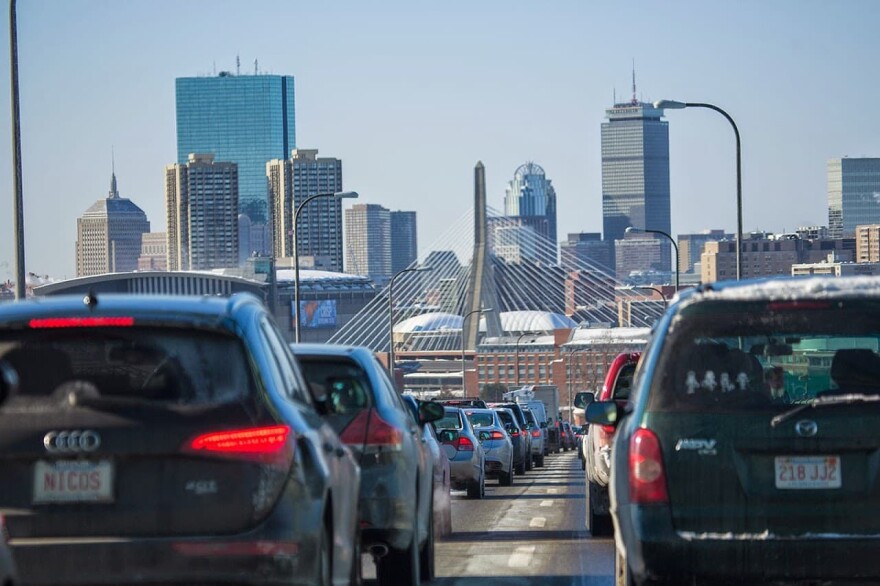A preliminary analysis of the health impacts of the regional Transportation & Climate Initiative (TCI) found that the plan that would reduce greenhouse gases the most would also yield the biggest health benefits, helping to avoid about 1,100 deaths and nearly 5,000 asthma cases, and saving $11.1 billion in heath costs in the decade after the initiative kicks in.
The analysis — known as the Transportation, Equity, Climate and Health Study (TRECH) and conducted by researchers at Harvard’s Center for Climate, Health, and the Global Environment, Boston University’s School of Public Health and the University of North Carolina — looked at 5 different policy scenarios that participating states are weighing. The scenarios considered different reduction caps for greenhouse gas emissions, from 20% to 25%, and different ways to invest the proceeds from distributor fees.
The study predicted that the most health benefits would result from a 25% reduction cap in emissions, invested primarily in transit expansion and upkeep, low and zero-emission buses and trucks, and improvements in walking and biking infrastructure.
While health benefits can be expected in all counties across the region, they will likely be more concentrated in urban areas.
“This study shows that TCI holds great promise for reducing that pollution in each and every county of the state,” said Chris Dempsey, director of the non-profit advocacy group Transportation for Massachusetts. “The findings should be an encouraging sign that the Baker Administration is on the right track by thinking boldly and regionally about how to address transportation pollution.”
In late 2019, Gov. Charlie Baker endorsed TCI, a collaboration between 12 Northeast and Mid-Atlantic states to reduce carbon emissions from transportation. The initiative works like this: Gas and diesel fuel distributors pay a fee for each ton of carbon emitted when the fuels they sell are burned. That fee would go up over time, while the cap on permissible emissions would go down.
The plan, which is slated to get underway in 2022, has come under fire from some governors who say that it will raise prices at the pump.
The revenue from TCI will go to the participating states to support cleaner transportation infrastructure, which could mean anything from electric school buses to better bike lanes. The Baker administration has estimated that TCI could generate up to $500 million a year in new revenue for Massachusetts.
The TRECH analysis only included two types of health benefits: Reduced air pollution and increased activity from biking and walking. Researchers did not consider other health benefits like reduced noise pollution or protection against climate change.
About 40% of greenhouse gas emissions in Massachusetts come from transportation, more than any other sector. Vehicles also produce pollutants like carbon monoxide and particulate matter that can that can directly harm people. Research has shown that this type of air pollution disproportionately affects lower-income communities and communities of color.
The most ambitious version of TCI would reduce the overall air pollution faced by people of color, but it would not close the racial gap, said Jon Levy, a professor at the Boston University School of Public Health and a member of the research team.
“This heads in the right direction, which is encouraging, but doesn’t go all the way to close that gap,” Levy said. “People of color would still face overall higher air pollution exposures”
Levy said that investing in public transportation and walking paths will lead to more health benefits and racial equity.
This article was originally published on WBUR.org.
Copyright 2020 WBUR





